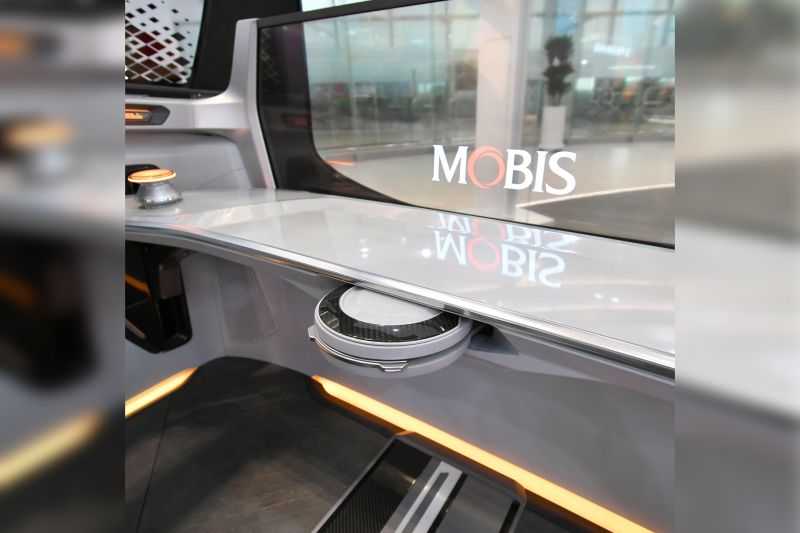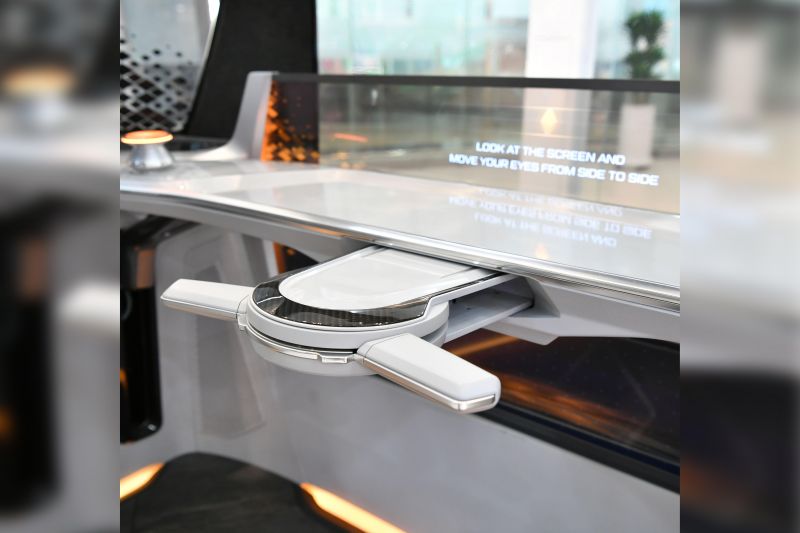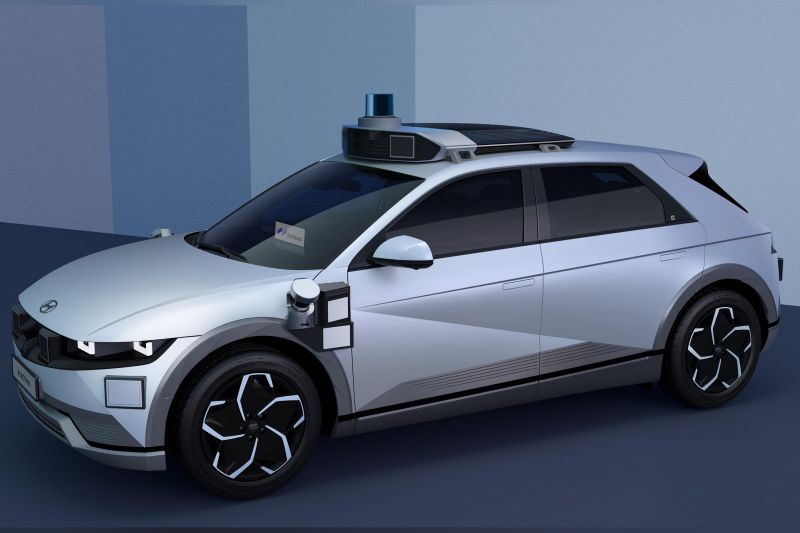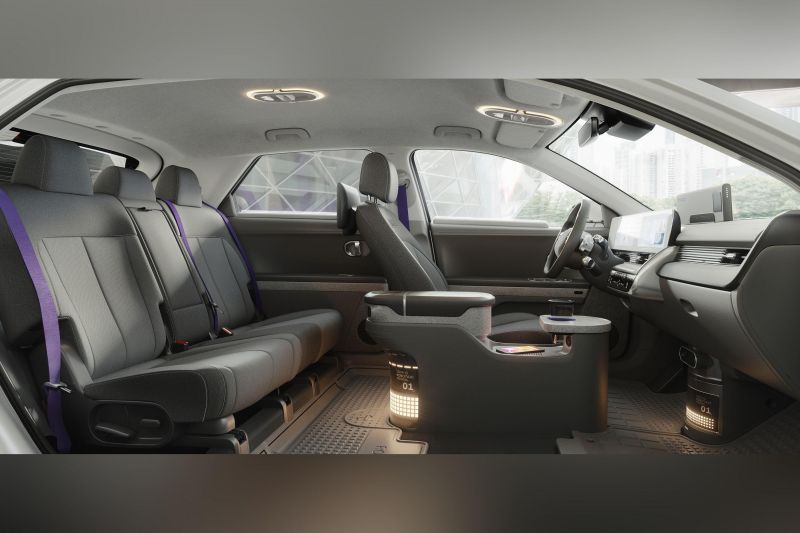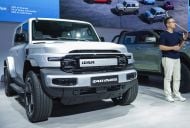Hyundai’s parts and service arm, Hyundai Mobis, has developed a folding steering wheel system perfect for self-driving cars.
The folding steering wheel can move forward and backward a total of 25cm and can fully retract into the dashboard.
When the steering wheel is retracted into its storage space, it frees up more space in front of the driver’s seat.
The main reason for developing this folding steering wheel is so it can be implemented in future autonomous Hyundai and Genesis vehicles.
This steering concept has been in development for two years and the company is filing patents globally.
Hyundai Mobis designed an all-new steering column and a reaction-force control device for the folding steering wheel system.
In other words, the reaction-force control device is the steering wheel itself.
An image of this steering wheel depicts it with two prongs which drivers use to steer the vehicle when it’s not in autonomous driving mode.
It seems like the bare minimum for manual steering as the company gears up for a future of autonomous driving.
Hyundai Mobis has also designed a sliding rail mechanism that allows for the steering wheel to slide in and out reliably.
This new foldable steering system is compatible with steer-by-wire set-ups, which trade mechanical linkages between the steering wheel and tyres for electric signals instead.
The benefit of steer-by-wire steering systems according to Hyundai Mobis is that they can minimise the vibrations from a rumble strip or a speed bump that’s usually felt through the steering wheel.
There’s also a set of sensors and an ECU built into the steering system that allows the vehicle to continue steering itself in the event of an emergency.
“Hyundai Mobis goes beyond simply reinterpreting existing technologies and instead develops parts technologies that apply to future cars in totally new ways,” says Jang-don Choi, managing director of chassis and safety at Hyundai Mobis.
“We will continue to develop future-oriented innovations based on our know-how of core technologies.”
Hyundai has already begun to venture into self-driving cars as it partnered with Motional to make an Ioniq 5 robotaxi.
It’s said that this robotaxi is a Level 4 autonomous vehicle that’s capable of driving itself without human intervention in situations it was designed to handle, but can still be driven by a person.
To transform the Ioniq 5 into a self-driving taxi, Motional fitted the Ioniq 5 with a suite of 30 sensors, including cameras, radar and LiDAR units.
It’s expected that riders across the US will be able to book an Ioniq 5 robotaxi using the Lyft ride-sharing app from 2023.
MORE: Motional to launch self-driving Hyundai Ioniq 5 taxi in 2023





